Are Numbing Habits Holding You Back?
By Dr. Kristi Angevine
How do you get through challenging and stressful times? Many of us fall back into old habits to help us cope. However, anything done repeatedly becomes a habit and not all coping strategies are helpful for personal and professional growth. So what is coping and what is numbing? How can we change numbing habits into habits that help instead of holding us back?
Coping or Numbing?
The qualities and skills that help us succeed at work can be the very things that undermine our well-being.
As professionals, we try our very best to give high quality care and are hard-working, altruistic, perfectionistic. Meaningful work and efficiency are common core values. As physicians, we deal with high stress situations daily.
After work, we still have other roles and responsibilities and very limited time to our own self care.
Read more on the truths and challenges of being a doctor mom.
How to cope with our high-pressure roles as a physician, a mother, spouse, friend—especially with limited time? What can we do when our coping habits are causing problems and making us feel worse in the long run?
The coping habits that don’t get us the results we want are worth inspecting.
Numbing Habits
Numbing habits offer temporary relief buffering uncomfortable feelings with a brief escape, taking the edge of hard experiences. However, numbing habits do not help address the underlying cause.
The nature of numbing habits is that over time these ways of coping can feel automatic, somewhat compulsive, and feeling they are out of your control.
|
Common Numbing Habits |
Effects |
|
Emotional eating |
weight gain, shame |
|
Excessive drinking, smoking, vaping |
must have it to have fun, poor sleep, shame |
|
Overspending |
excess material possessions, financial strain, clutter, guilt |
|
Excessive technology use: social media, binge watching tv, Netflix, video games, computer, etc |
stay up late, unproductive use of time, poor sleep, guilt over wasting time |
|
Procrastination |
overwhelm, feeling behind |
|
Anxious habits |
biting nails, fidgeting, etc |
|
Busywork |
lots of lists, constantly doing or scheduling things, overwhelm |
Deconstruct the numbing habit: Find your why
When dealing with a numbing habit, the question for reflection: why am I seeking to take the edge off this thing (situation, emotion, interaction) in the first place?
One of my mentors taught me to ask the following questions when dealing with numbing habits:
- How do you feel before, during and after? Antsy, restless, craving the thing?
- During, does it provide relief? After, is there stress, guilt, more desire for more?
- If you couldn’t do the activity—press “buy” take off the edge with a drink, eat the muffin—would you feel irritable or agitated?
8 Steps to Change Numbing Habits
Easy to grasp intellectually. Easy to blow off as too simplistic. Like all things, implementation is the kicker. Application in real life is where we encounter the best challenges and where the real transformation happens.
-
- Identify the numbing habit by reflecting on what you fall back to in times of stress. What is your go-to for quick comfort? What do you do that makes you feel guilty right after?
- Decide why you want to change it.
- Figure out what fuels the habit. What are your triggers, the circumstances, thoughts, emotions that compel you to do the habit? How can you prevent it?
- Set up a plan. When the urge arises, what can you do instead to delay gratification?
- Write it down or talk to a friend. Note the impulse, how you felt before, during, and after it. Over time, you will feel a sense of pride, awareness, and accomplishment.
- Allow yourself to experience the discomfort. Instead of distracting yourself from it (by fulfilling the habit), let the feeling/urge come up, bring awareness to it in your body, and let yourself feel the emotion.
- Use the plan you’ve set up for this moment.
- Remind yourself often: challenging does not mean impossible. You can and will break this habit.
You CAN break the habit
Recognize the numbing habit as a choice that you can take or skip. Know that you can make a different choice too.
Truth: You don’t have to drink the wine/start another episode/scroll mindlessly through your phone/eat the other half piece of cake.
By allowing urges but not answering them, honoring your plan, you practice unpacking the numbing habit.
By increasing awareness of the discomfort, you learn that you can address the underlying feeling/emotion without numbing yourself to it.
You can tackle the root causes: restlessness, disappointment, work stress, social awkwardness at events, boredom, anxiety, overwhelm, angst about libido, worry, burnout.
You don’t need to take the edge off the hard emotions or numb yourself and feel worse afterwards.
Intentionality is Key
Numbing habits do not serve us. They may feel good in the short term but affect us negatively in the long term. We know this and yet it can still be challenging to break the habit.
However, challenging does not mean impossible.
The fascinating thing about habituated behaviors is that they are things we teach ourselves, they are our habits. Because we learn them, we can also “unlearn” them by replacing them with better, more intentional habits.
It’s not going to be perfect or easy but you CAN do it. Even if it is a few steps forward and a few steps back, keep moving forward.
Changing numbing habits is legitimate reorientation and transformation. It creates integrity with yourself and this radically shifts your identity so that you are the best version of you.
What better for the mom, wife, physician, friend, yogi, athlete in all of us?
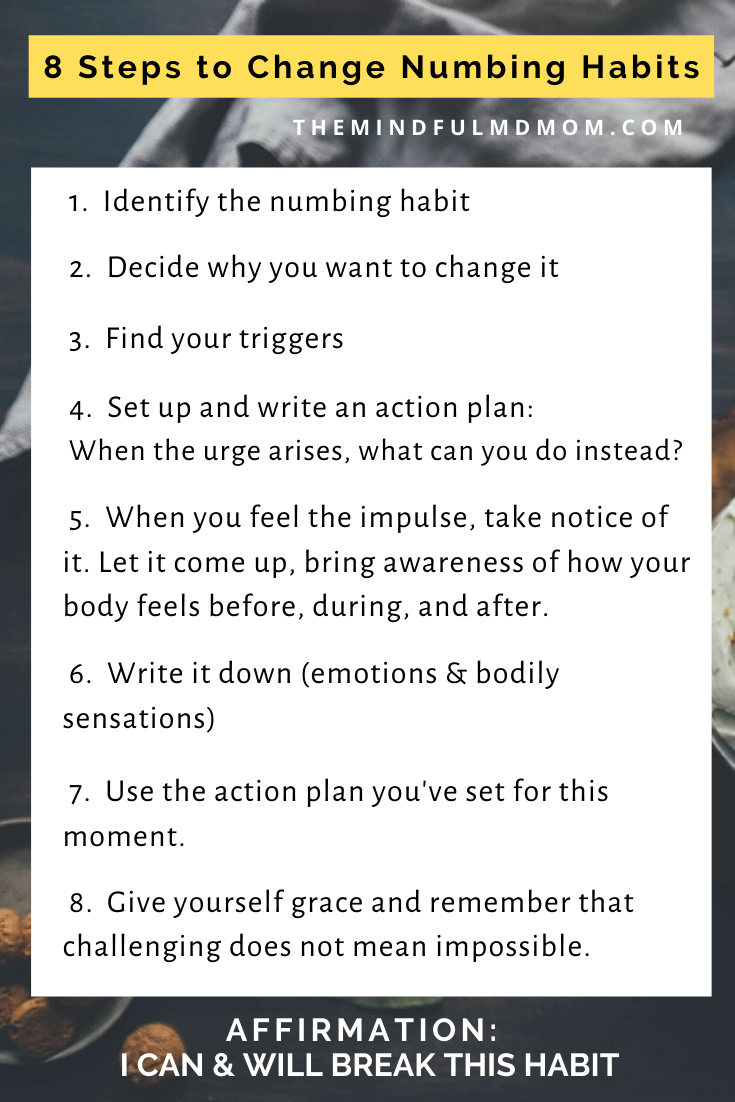
Author Bio:
Dr. Kristi Angevine is an Ob/Gyn and Life Coach. What began as a personal journey to solve her own burnout turned into a passion project to help other physicians feel better through coaching. She runs Habits on Purpose for Physicians (HOPP). HOPP’s mission is to support physicians to craft intentional habits for long term well being so they can design work and life on their own terms. Her flagship program, Outsmart.Etoh, is geared toward physicians who want to change the way they wind down and transform their relationship with alcohol. She can be found at Habits on Purpose for Physicians or at kristiangevinemd@gmail.com
More Articles You May Find Interesting:
10 Mindful Ways to Invite Inspiration to Your Day
How to be Mindful When You Feel Distracted
93 - 93Shares
- 93Shares
93

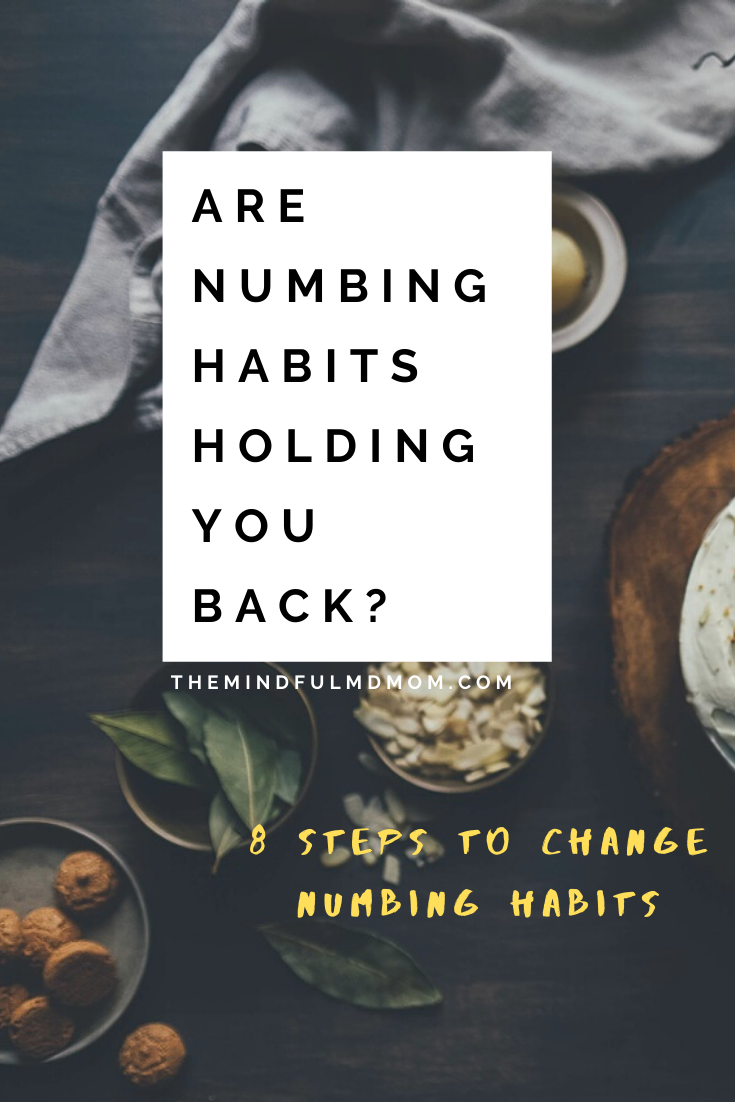

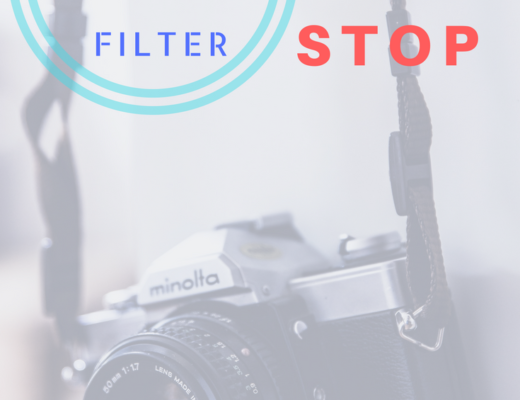
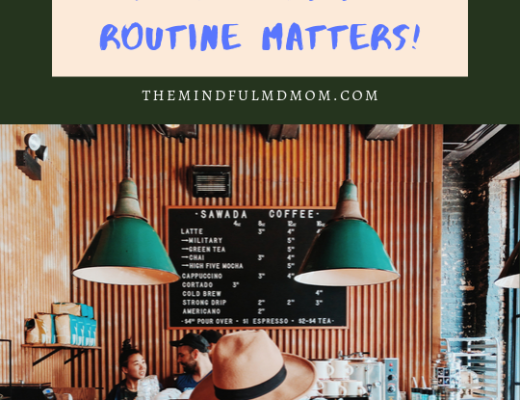
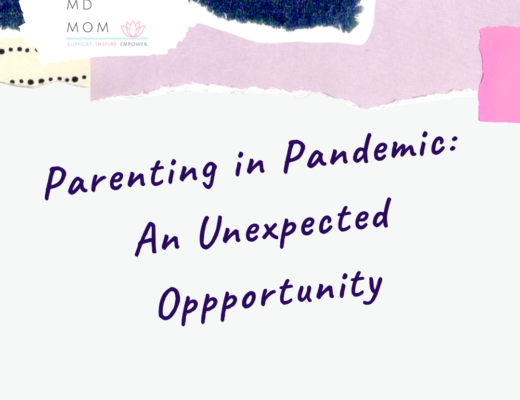
No Comments